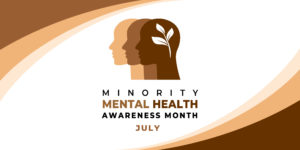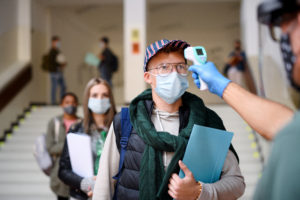Knowing the state of mental health among unhoused individuals is the first step in better advocating for change. Consider how mental health plays a role in issues surrounding homelessness, and how your organization can begin to work towards eradicating adverse mental health in your communities.
Care coordination plans are the future of healthcare. By utilizing strategies that bring community resources together, health and human service providers can offer better, more comprehensive services that save costs while improving patient outcomes.
Health and human services are complex. They require case management systems that not only do the job but do it well. How can you be sure that your case management is at the standard you need? Consider these four elements: client intake and assessment, design tools, referral management, and reporting.
For over 30 years, Ryan White programs have led the nation in HIV care. Today, nearly half of all HIV-positive individuals in the US rely on Ryan White for their health needs. Organizations providing this care are comprehensive in their approach and focus on helping low-income communities.
How (and why) do social services differ for children? The better we can understand the unique needs of children and youth, the better we can help. Improving social service effectiveness for children is not only valuable; it can be life-changing.
Is your organization properly addressing minority mental health? Understanding the unique needs of minorities is imperative to lasting community change. By finding strength in communities, health and human service groups can better serve individuals and families.
July is Social Wellness Month, and central to health and wellness is a sense of community. How can health and human service organizations better foster this belongingness? It starts with care coordination that is focused on bringing services together.
As the summer months continue, experts warn of an uptick in domestic violence cases. Why does such violence increase during this warmer season? More importantly, what can your social service organization do to help?
Did you know May is both Mental Health Awareness AND Teen Self-Esteem Month? Pivot Adventure, a non-profit in Utah, utilizes recreational therapy to provide affordable mental health courses for teenagers. Their unique approach is critical to the effectiveness of these social services.
Is your organization addressing mental health concerns? If you work in the health and human services industry, then your program could benefit from focusing on mental health. Consider these three simple steps below to begin incorporating mental and behavioral health into your social services.
As the coronavirus pandemic continues, experts warn of the devastating effects of a rise in domestic violence. With close living quarters, financial and economic stress, and increased substance abuse, domestic violence cases are trending upward. Health and human service organizations can help mitigate this rise through regular screening and increased awareness.
This year’s theme for World Health Day is “Building a Fairer, Healthier World”. Key to accomplishing this goal is understanding—and addressing—social determinants of health. As more healthcare providers take a holistic approach to health, more individuals and communities will receive the care they need.
Running a health and human services organization can be as challenging as it is rewarding. Often, case management processes—like entering data into spreadsheets, creating reports, and handling clientele growth—can slow down organization effectiveness. Be aware of the signs that show it may be time to upgrade to a more functional case management system.
Despite being high-risk for COVID-19 complication, HIV/AIDS patients still experience challenges in obtaining the care they need. As organizations better understand the relationship between HIV and the coronavirus, it emphasizes the need for community care coordination.
The challenges for aging services have become more apparent in the wake of COVID-19. Not only are older adults more at risk from coronavirus complications but they are also prone to compounding issues regarding food security, mental health, and isolation.
Want Even More?
Get Started
By Phone
Contact us today to learn how Eccovia can help you achieve improved outcomes for the people your organization serves.














